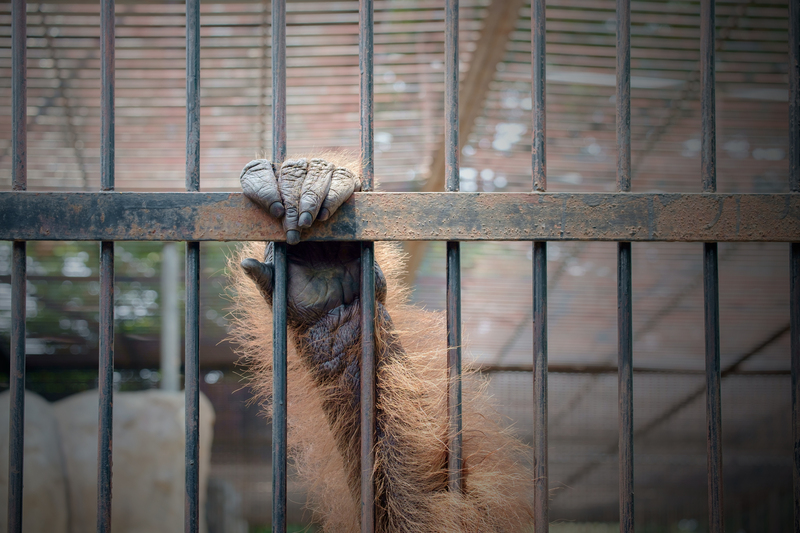Smart Disposal Methods for Your Garden Plant Pots
Posted on 29/08/2025
Introduction to Smart Disposal Methods for Your Garden Plant Pots
If you're an avid gardener, you've likely accumulated a collection of garden plant pots over the years. Whether they're made of plastic, ceramic, terracotta, or biodegradable materials, old and broken plant pots can pile up quickly. Disposing of them responsibly is not always straightforward. With sustainability becoming an increasing priority, it's essential to understand the smart disposal methods for your garden plant pots and how you can play your part in reducing waste and protecting the environment.

Why Is Smart Disposal of Plant Pots Important?
Discarded plant pots, especially plastic ones, contribute significantly to landfill waste and environmental pollution. Responsible plant pot disposal ensures that recyclable and reusable items don't end up in landfills, reduces the environmental footprint of gardening, and sometimes even provides materials for new products. By being conscious of how we discard our gardening supplies, we can make our green spaces even greener.
- Reduces landfill volume by diverting pots from the waste stream
- Supports recycling industries and circular economy efforts
- Prevents plastic pollution, as many pots are made from non-biodegradable plastics
- Promotes a more sustainable gardening culture
Types of Garden Plant Pots and Their Disposal Implications
Depending on the material your plant pot is made from, its disposal method will vary. Here's a breakdown of common types:
Plastic Plant Pots
- Recyclable Plastics: Many plastic pots are made from recyclable materials such as polypropylene (PP), high-density polyethylene (HDPE), or polystyrene (PS). These usually carry a recycling symbol and a resin identification code on the bottom.
- Non-recyclable Plastics: Some plastic pots are created from mixed plastics or types not accepted by local recycling programs, making them harder to dispose of responsibly.
Ceramic and Terracotta Pots
- Ceramics: These are fired at very high temperatures, making them non-recyclable through standard curbside recycling but possibly reusable or repurposable.
- Terracotta: Like ceramics, terracotta cannot be recycled conventionally but breaks down naturally over time. Broken pots can often be reused in creative ways.
Biodegradable and Eco-friendly Pots
- Bamboo, Coir, or Paper-Based Pots: These are typically compostable and can be returned to the earth, adding nutrients as they decompose.
Smart and Eco-Friendly Disposal Options
To avoid contributing to garden waste, consider these smart disposal methods for your garden plant pots:
1. Reuse and Repurpose
- Seed Starting: Old pots are ideal for starting new plants from seeds or cuttings. Even cracked pots can be used for this purpose.
- Organize Your Shed: Use pots to store gardening tools, labels, or twine. They also work as organizers for smaller hardware.
- Creative Art Projects: Paint or decorate pots for art, use as festive lanterns, or craft into whimsical garden decor.
- Broken Pot Gardens: Don't throw out broken ceramic or terracotta pots! Turn them into unique fairy gardens or mini rockeries by stacking and arranging shards creatively.
Reusing is the smartest first step before considering disposal or recycling.
2. Recycling Plant Pots
While more nurseries and cities have started specialized plant pot recycling programs, not all recycling centers accept plant pots through standard curbside collection. Here's how to approach recycling:
- Check Local Guidelines: Research your local recycling policy. Only certain types of plastic are accepted. Look for the recycling symbol and resin code on your pots.
- Nursery Take-back Programs: Many nurseries and garden centers offer return or take-back programs for used pots. They ensure pots are properly recycled or reused.
- Rinse and Sort: Clean all dirt and debris to maximize the chances of pots being recycled rather than sent to landfill.
Remember: Only clean, accepted-number plastics with recycling codes are recyclable through these programs.
3. Compost Biodegradable Pots
If you use biodegradable garden pots made from coconut coir, peat, paper, or even some bio-plastics, these can usually be composted at home (unless coated with plastics or chemicals). Here's how:
- Tear Into Pieces: Speed up decomposition by breaking pots into small bits before adding them to your compost pile.
- Avoid Coated Pots: If your biodegradable-looking pot has a plastic or wax coating, it is not compostable.
- Check Manufacturer Instructions: Some bio-based pots should only go in industrial composting facilities.
Biodegradable pots are the ultimate zero-waste option for environmentally conscious gardeners.
4. Donate Usable Pots
- Community Gardens: Local gardening initiatives are often happy to accept donations of gently used pots.
- Schools and Nonprofits: Educational projects, horticultural programs, and nonprofits may use them for plant-based activities.
- Online Giveaways: Platforms like Freecycle, Craigslist, Facebook Marketplace, or local gardening groups let you offer unwanted pots to others.
Donating is a sustainable option letting your plant pots help others grow their own gardens.
5. Proper Trash Disposal (If All Else Fails)
If your plant pots are truly non-recyclable, irreparably damaged, and cannot be repurposed or composted, then trash disposal is the last resort.
- Reduce Frequency: Opt for the trash can only as a last option. Consider bulk trash pick-ups for large quantities.
- Break Down Large Pieces: Smaller pieces take up less landfill volume.
- Reevaluate for Future Purchases: This is also the moment to think about buying more sustainable pots in future seasons.
Tips for Sustainable Garden Pot Use
Practicing smart disposal starts with smarter choices. Choose garden pots wisely and maintain them for longer life. Here are some additional, sustainable gardening tips:
- Choose Durable and Recyclable Pots: Prefer materials that last multiple seasons and are easily recyclable, such as HDPE (recycle code 2) or polypropylene (recycle code 5).
- Buy From Responsible Sources: Support nurseries and brands committed to sustainability and recycling initiatives.
- Care for Your Pots: Regularly clean and store pots indoors during harsh weather to prevent cracking and degradation.
- Label Pots Clearly: If you tend to reuse pots multiple times, labeling helps keep your gardening organized and extends the functional life of each pot.
Creative Upcycling: Giving Plant Pots a Second Life
Upcycling old containers is a fun and creative extension of eco-friendly plant pot disposal. Here are some inventive ideas that can add charm to your home or garden:
- Herb Planters: Cluster smaller pots together for a windowsill herb garden.
- Birdbath or Feeder: Large, shallow pots can be converted to birdbaths or bird feeders with a little creativity and a sturdy base.
- Outdoor Storage: Store hoses, garden gloves, or outdoor toys in seasonally unused pots.
- Decorative Path Edgers: Turn broken pot pieces into unique, rustic edging for garden paths.
- Compost Bin Aerator: Place broken clay pot shards at the bottom of compost bins to improve aeration and drainage.

Frequently Asked Questions on Plant Pot Disposal
Can you recycle black plastic plant pots?
*Black plastic* often isn't accepted by municipal recycling because automated sorting machines can't detect it. Some garden centers, however, collect and properly recycle black plastic pots, so always ask before throwing them away.
Are all plastic plant pots recyclable?
*Not all are recyclable.* Look for a recycling symbol and resin code number (typically 2, 5, or 6) on the bottom. If absent, check with your local program or consider reuse.
What should you do with broken ceramic or terracotta pots?
Broken pieces *cannot* be recycled through standard municipal systems, but they are perfect for drainage in large pots, DIY mosaic projects, or as mulch in pathways.
Can biodegradable pots go in a home compost bin?
In most cases, *yes!* Break them down into small pieces. Avoid composting if coated in plastic or containing synthetic additives.
How can you find local pot recycling programs?
Contact local garden centers, plant nurseries, or your city's waste management department. Many offer specific drop-off bins or seasonal collection drives for plant pots.
Conclusion: Greener Gardens Begin with Smart Disposal
Implementing smart disposal methods for your garden plant pots is a crucial step toward a more sustainable gardening practice. From reusing and donating to embracing recycling and upcycling, gardeners can take simple actions to dramatically reduce waste. Making smarter choices today helps protect our environment and ensures our green spaces remain vibrant for future generations.
*Next time you're left wondering what to do with a pile of empty pots, remember: smart disposal is just another way to let your love for gardening bloom!*
Latest Posts
The Benefits of Proper Electronic Waste Management
Fostering a Greener Workplace Community
Working Green: Smart Solutions for a Low-Waste Workplace
Tackling Waste Over Time: Evolution of Disposal and Recycling

